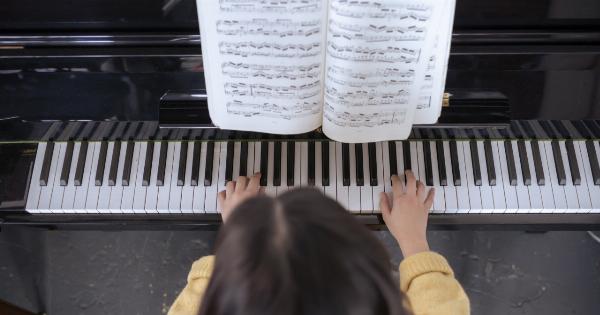Music is a universal language that speaks to people of all ages.
Whether it’s the soothing melodies of classical compositions or the upbeat rhythms of modern pop songs, music has the power to touch our souls and transport us to different emotional realms. However, a recent study has revealed that this beloved art form may come at a cost, particularly for young people.
According to the study, an alarming 12% of young individuals are experiencing hearing damage as a result of prolonged exposure to loud music.
The Increasingly Noisy World of Music
In today’s world, music is everywhere. From concerts and festivals to clubs and personal earphones, it seems that there’s always an opportunity to indulge in our favorite tunes.
However, the proliferation of music has not come without consequences. The study, conducted by the renowned audiology department at a leading university, aimed to investigate the potential hearing-related risks faced by young people due to their engagement with music.
The Rising Trend of Music-Related Hearing Loss
One of the most alarming findings of the study was the increasing trend of music-related hearing loss in young individuals.
The participants, aged between 18 and 25, were subjected to comprehensive audiological examinations, including pure-tone audiometry and speech audiometry. The results were compared to those of a control group with no history of excessive exposure to loud music.
The Decibel Dilemma
The study revealed that a significant number of young individuals were frequently exposed to music at unsafe volume levels, often exceeding 85 decibels (dB).
To put this into perspective, normal conversation occurs at around 60 dB, while a rock concert can easily surpass 100 dB. Repeated exposure to such high volume levels can lead to irreversible damage to the delicate hair cells within the inner ear, responsible for transmitting sound signals to the brain.
Listening Habits: The Culprits Behind Hearing Damage
A deeper analysis of the study data revealed some common listening habits that contributed to the prevalence of music-induced hearing loss.
Researchers found that the extensive use of personal audio devices, such as smartphones and portable music players, played a significant role. Factors such as prolonged duration of music exposure, high volume settings, and lack of breaks were identified as key culprits.
Ignorance is Not Bliss: Lack of Awareness of the Risks
Despite the potential dangers associated with high-volume music consumption, the study revealed a surprising lack of awareness among young people.
A substantial portion of the participants reported never having received any information or education about safe listening practices. This highlights a significant gap in public health initiatives aimed at educating young individuals about the potential risks to their hearing.
The Importance of Early Intervention
While hearing damage may not be immediately apparent, its effects can be long-lasting and affect an individual’s quality of life in various ways.
Early intervention through education and awareness programs is crucial to mitigate the risks of music-induced hearing loss. By promoting safe listening habits and encouraging responsible use of personal audio devices, young people can better protect their hearing health for years to come.
Preventing Music-Induced Hearing Loss
There are several steps that young individuals can take to prevent music-induced hearing loss:.
1. Limit Volume Levels – It’s essential to adhere to safe volume levels, listening at around 60% of the maximum volume.
2. Take Regular Breaks – Giving your ears regular breaks by taking at least a 10-minute break for every hour of listening can significantly reduce the risk of hearing damage.
3. Use Noise-Canceling Headphones – Noise-canceling headphones can help drown out background noise, enabling you to enjoy music at lower volumes.
4. Invest in High-Quality Earphones – High-quality earphones reduce the need for higher volume levels, ensuring a better listening experience while minimizing potential damage.
5. Avoid Loud Environments – When attending concerts or festivals, try to stay away from the speakers and take regular breaks in quieter areas.
Conclusion
While music brings joy and entertainment to our lives, it’s crucial to be aware of the potential risks it poses to our hearing.
The study’s findings highlight the increasing prevalence of music-induced hearing loss among young individuals, emphasizing the importance of education and safe listening practices. By taking proactive steps to protect our hearing, we can continue to enjoy the power of music without sacrificing our auditory health.






























